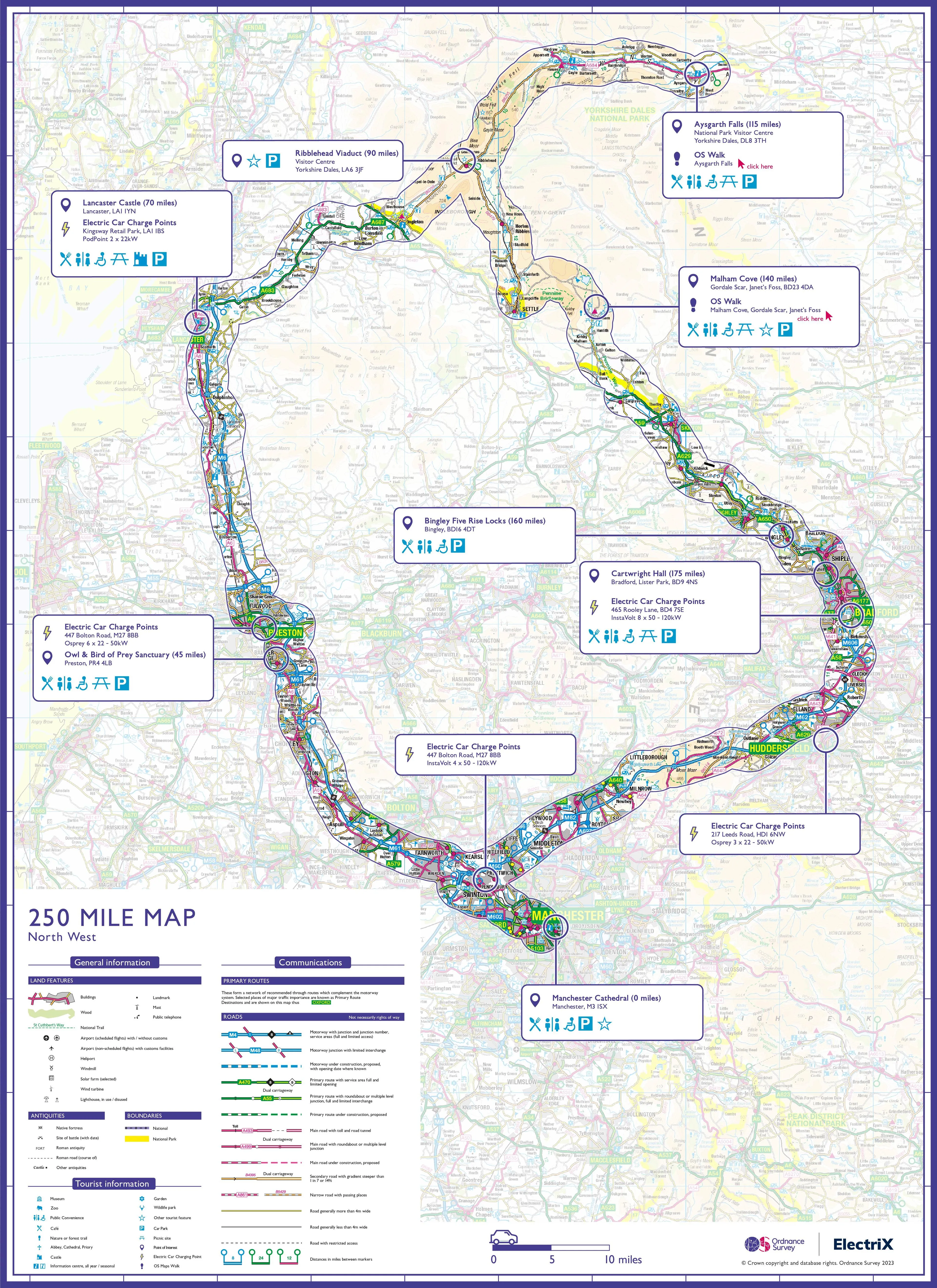Busting the nation's biggest EV myths
No handbrakes, no going through the car wash, no long journeys
Press Office
Study also found 60% weren’t aware an electric car can travel for distances as long as 250 miles without needing to stop and charge, and more than a quarter believe they can’t travel long distances at all. Research reveals the biggest myths Brits believe about electric vehicles (EVs) include not being allowed to drive through a car wash, needing to replace the battery every five years and not having a handbrake.
Continuing to pay for electricity when the car is charging even once the battery is full and being considerably slower than a petrol or diesel model are also featured on the list of misconceptions people have about electric vehicles, according to a poll of 2,000 motorists conducted by ElectriX, part of LV= General Insurance – one of the largest insurers of electric cars in the UK.
More than a quarter (31%) also assume they can’t travel long distances at all in an electric vehicle, a belief that has put 36% off ever going electric – despite many EV’s actually being able to travel up to 250 miles on a full battery.
Road trips

To help banish these popular misconceptions Electrix has teamed with Ordnance Survey to create a series of family friendly 250-mile road trips around Great Britain just in time for the summer holidays - highlighting just how far an EV can travel on a single charge.
The project launches as research that reveals 60% of us weren’t aware an electric car can travel for distances as long as 250 miles without needing to stop and charge, with adults thinking they can travel an average of just 169 miles in an EV before needing to stop.
Members of the public can choose from four different mapped routes covering the South East, North West, Wales or Scotland, all of which can be completed over the course of a weekend. The 250-mile routes highlight fun activities for all the family as well as scenic landmarks up and down the country, from the Scottish Highlands and the Pembrokeshire Coast to the Yorkshire Dales and the South Downs National Park.
When quizzed on road trips in general, 73% have previously been on one, with 32% set to try one this summer. According to the survey, four hours is considered the amount of time when a journey officially becomes a ‘road trip’, with Brits citing music (24%), good weather (28%), and the company (33%) as the most important factors for the ‘perfect’ road trip.
Encouragingly, nearly half of those polled (46%) would like to explore more of the UK than they currently do and 38% believe it has some of the best cultural landmarks in Europe.
"We know that families will be looking for fun activities to keep the kids busy when schools break up. At OS we’re thrilled to have created these series of maps in partnership with ElectriX, which complement our existing range of paper and digital maps."
Nick Giles OBE, MD for Leisure at OS, said: “We know that families will be looking for fun activities to keep the kids busy when schools break up. At OS we’re thrilled to have created these series of maps in partnership with ElectriX, which complement our existing range of paper and digital maps.
They will help families to have the confidence of just packing up the car and hitting the road to explore all that Britain has to offer on a staycation to remember. We’ve got it all mapped out from suggested picnic spots, points of interests, even suggested walks available in the OS Maps App to stretch your legs after the journey.”
Gill Nowell, Head of EV Communications at ElectriX said: “Our research shows many Brits incorrectly assume they can’t travel long distances in an EV, so we’re excited to be teaming up with Ordnance Survey to show the nation just how far an electric vehicle can drive on one charge. We know road trips are the perfect family getaway, and with many planning one already this summer we want to bust the myths around going electric.
And if you want to go further than 250 miles, there are now over 46,000 public chargers to help you on your way, as well as an increasing number of tourist attractions that offer charging facilities for EV drivers. It’s a great time to go electric!”
Top 15 electric vehicle myths
- EVs can’t travel on long car journeys
- It can take up to 12 hours to charge the battery
- The battery needs to be replaced every five years
- The car moves slower when there is low battery
- People can hear you better from outside the car because there’s no engine noise
- It’s easy to forget whether the vehicle is turned on or off
- They are slower than non-EV vehicles
- You continue to pay for electricity if the car is charging, even when the battery is full
- You can’t put an EV through a car wash
- They can steer themselves
- If you overcharge the battery it will break the car
- There isn’t a handbrake
- EVs can only travel for up to one hour on a single charge
- You can’t charge the vehicle when it’s raining
- They can’t go in the fast lane on the motorway
Sharing the latest news about OS. We can license you to use OS maps in print, online and film format. For more information and resources for journalists, bloggers and media professionals, email pressoffice@os.uk or call 023 8005 5565.
Explore OS Maps
You can share your walking, cycling or running routes in Great Britain by downloading the OS Maps App on your phone, PC or laptop